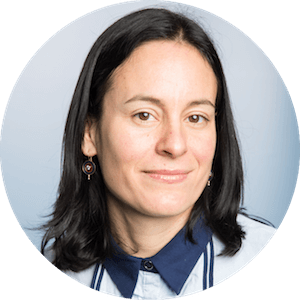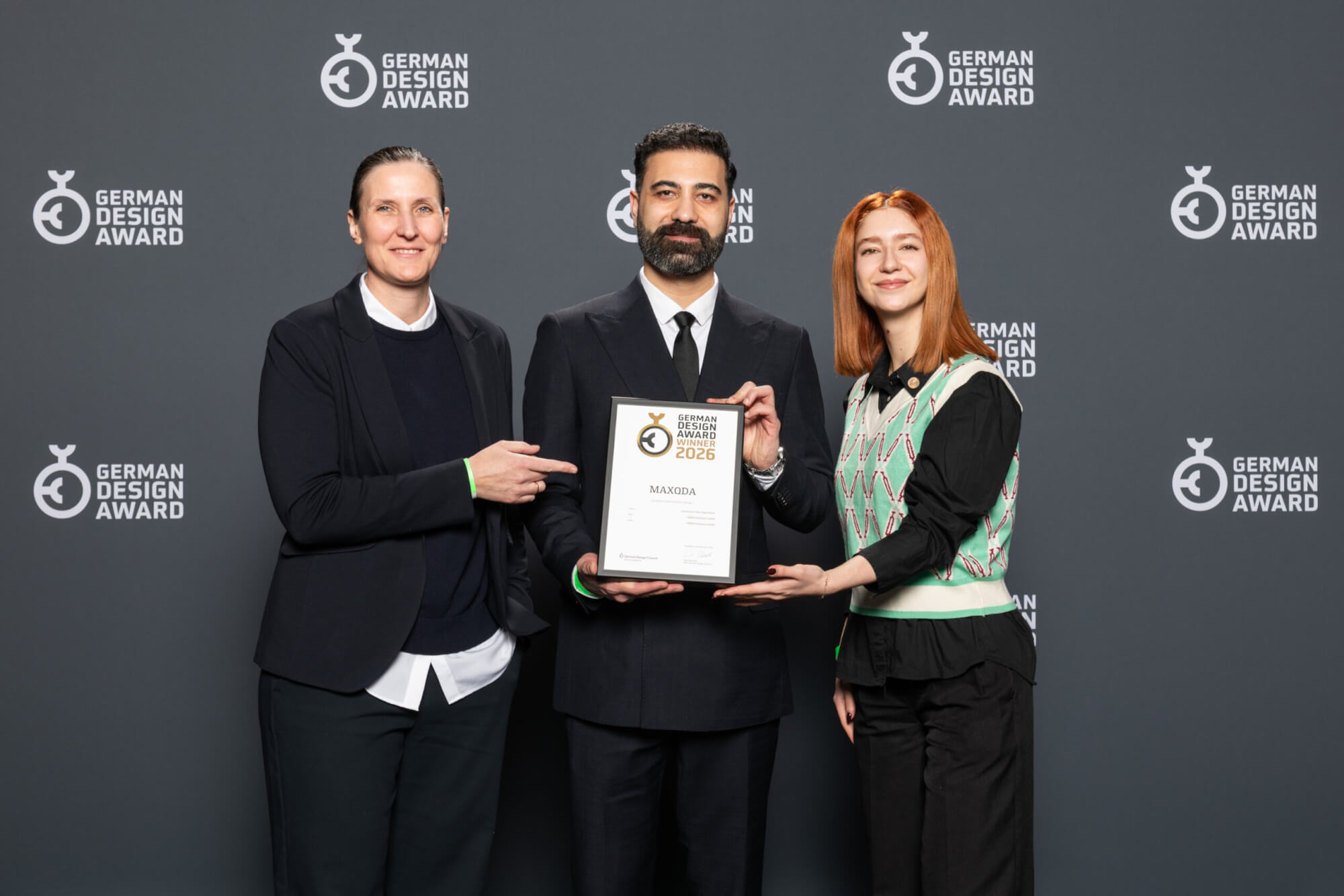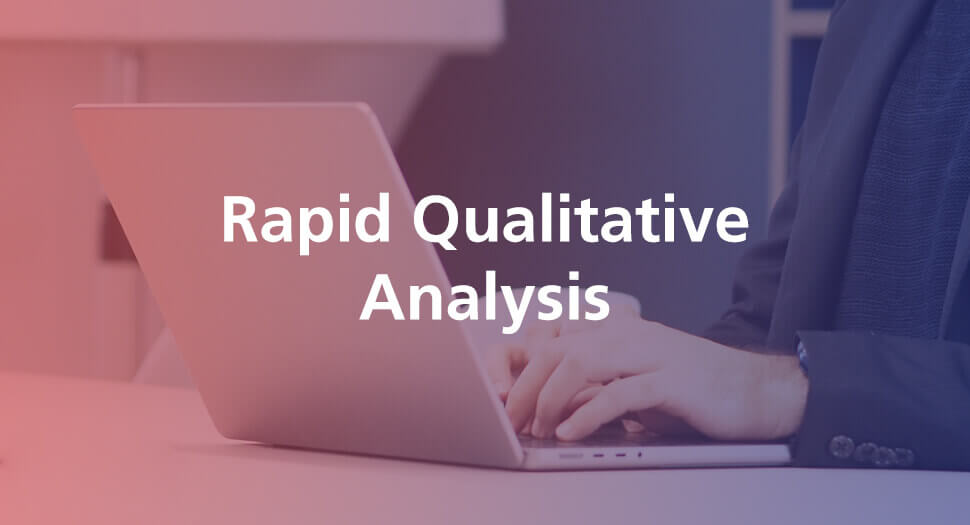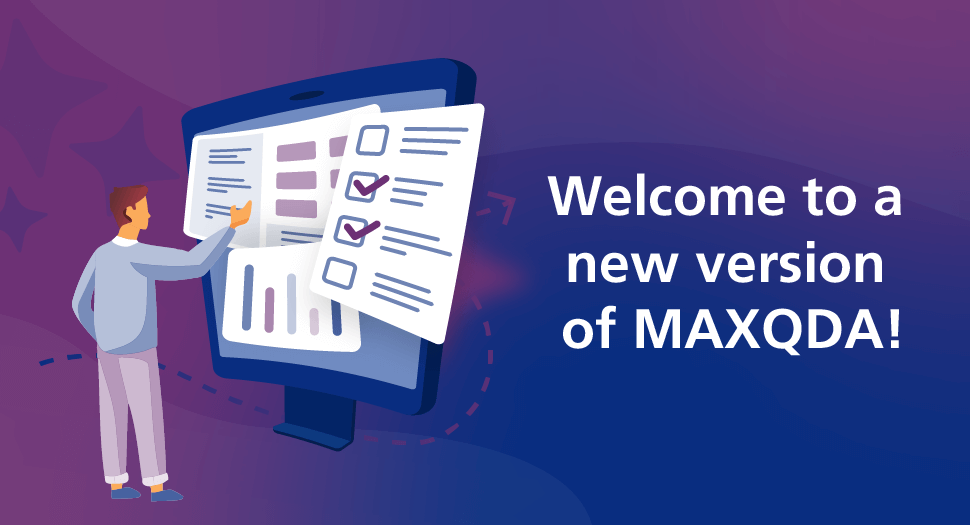This is a guest article written by Vanja Kovačič. In this real-world MAXQDA research example, the author describes what it is like to gather and analyze data while researching in the context of war.
Using MAXQDA to support a patient-centred approach at a Reconstructive Surgery Programme (RSP) for victims of war
Doctors Without Borders (Médecins Sans Frontières; MSF) is an international, independent, medical humanitarian organization that delivers emergency aid to people affected by armed conflict, epidemics, natural disasters, and exclusion from healthcare. In 2003, MSF opened a reconstructive surgery programme (RSP) in Amman, Jordan dedicated to local victims of war.
In the context of war, access to specialised reconstructive surgery is often extremely limited or non-existent. Patients at this RSP, who are mostly from Syria, Iraq, and Yemen, suffer from complicated injuries that require numerous surgeries and long-term treatment. Upon arrival to Amman, they are often immobile, bedridden, unable to eat or speak, and suffer from post-burn complications. RSP aims to improve their quality of life through holistic care, providing surgery, physiotherapy, and psycho-social support free of charge.
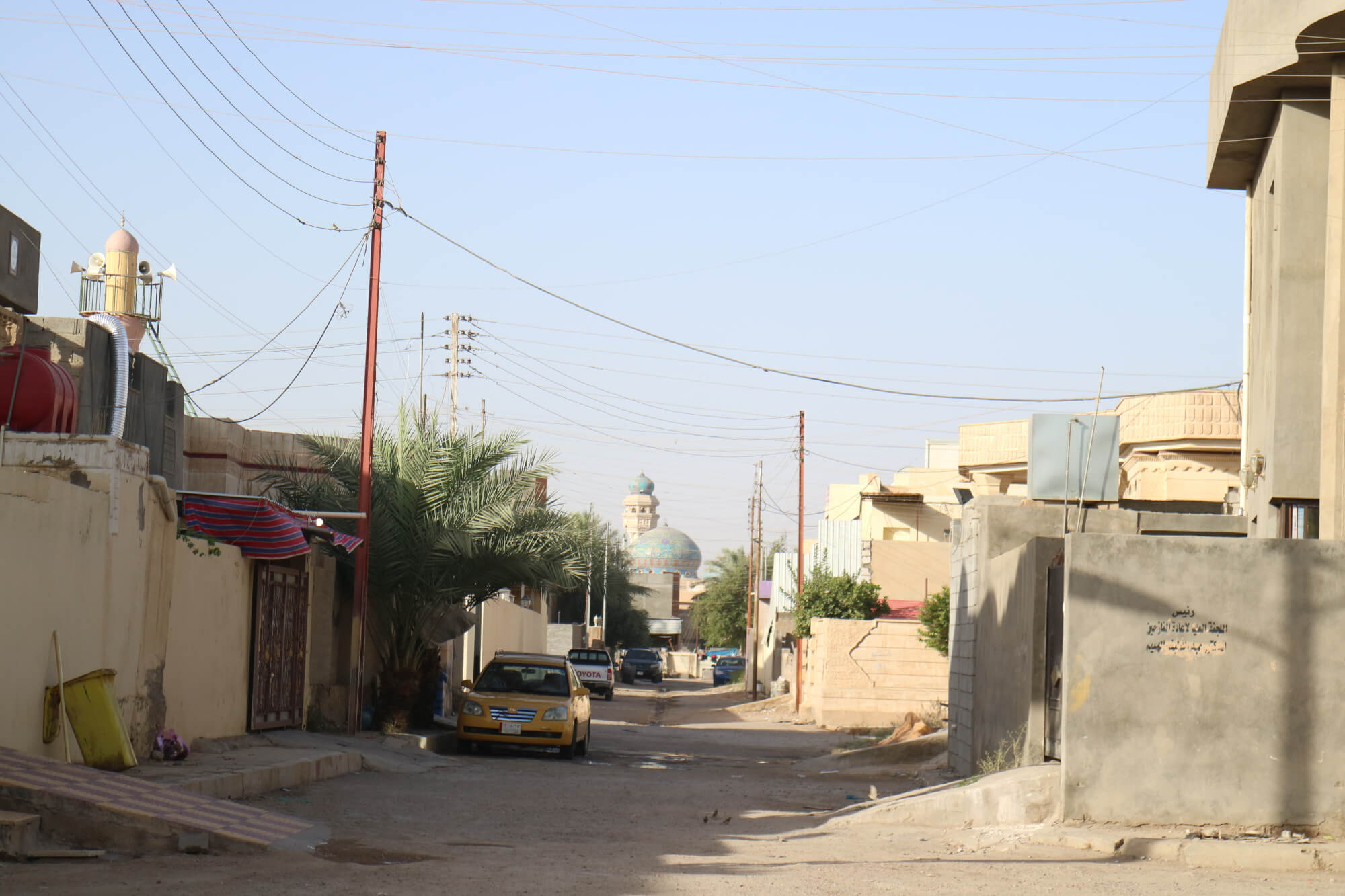
Fieldwork in Iraq
Patient-Centred Approach
One of the main objectives of the RSP is patient-centred delivery of care. A qualitative research project was therefore launched in order to support these efforts. The research has been designed as a two-fold project: in the first phase, which has already been completed, the perceptions of patients by the hospital staff were assessed. In the second phase, which I am currently conducting, the impact of the programme is currently being assessed from the patients’ perspective.
Research Methods Phase 1: Perceptions of Patients by the Hospital Staff
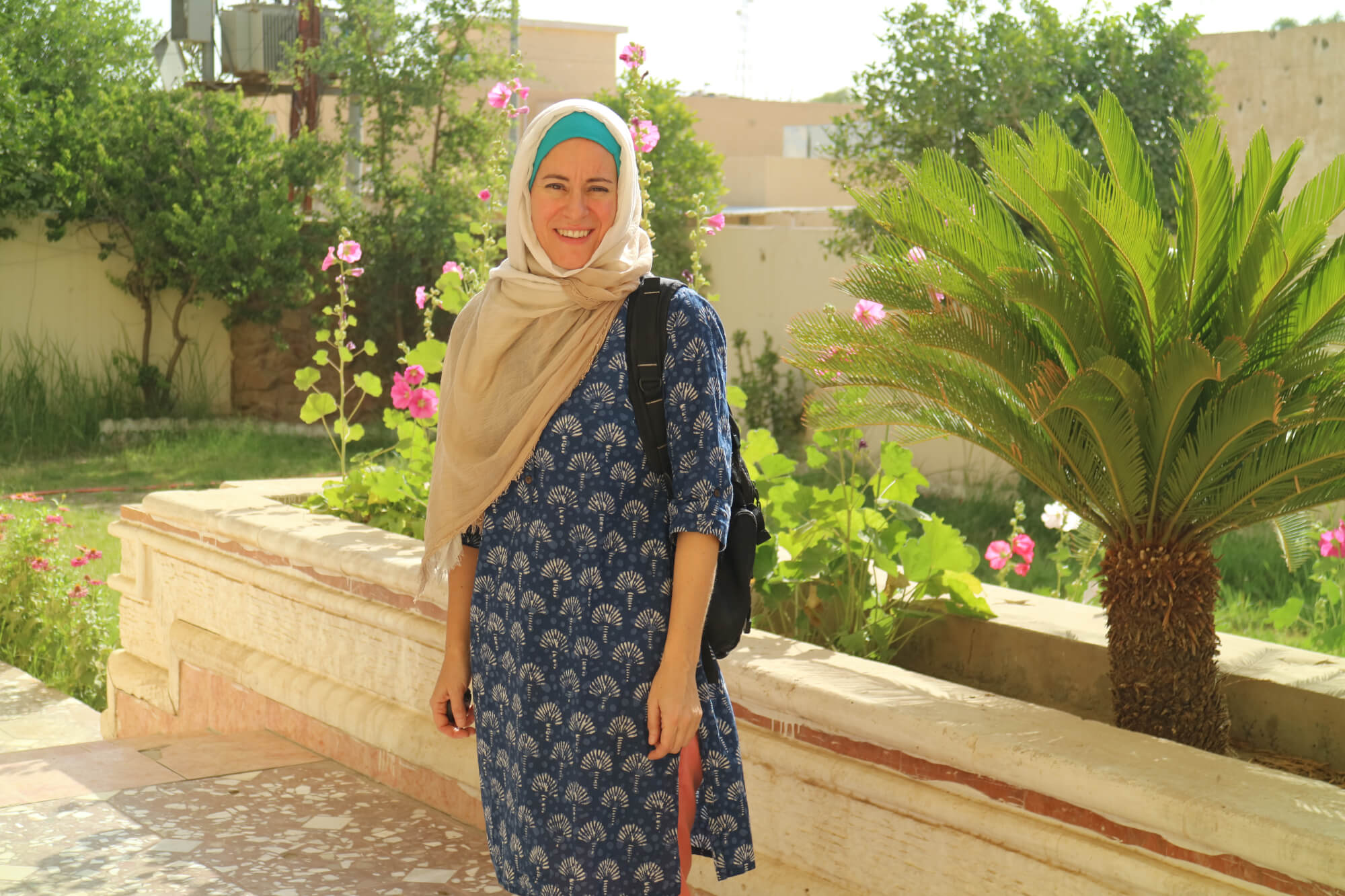
Vanja in the Field
The way in which hospital staff members perceive and relate to patients influences the delivery of healthcare. To capture their related experiences and views, in-depth interviews were conducted with 99 representatives from all the departments of an MSF-run hospital in Amman (medical, surgical, paramedical, hospital management, and hospital support). Interviews were conducted in English or Arabic, directly translated to English, and then transcribed by a trained assistant.
Learn More about this MSF Hospital
Analysis with MAXQDA
A thematic content analysis approach was used to analyse the interview transcripts. We imported the transcripts into MAXQDA Analytics Pro and coded them (Screenshot 1).
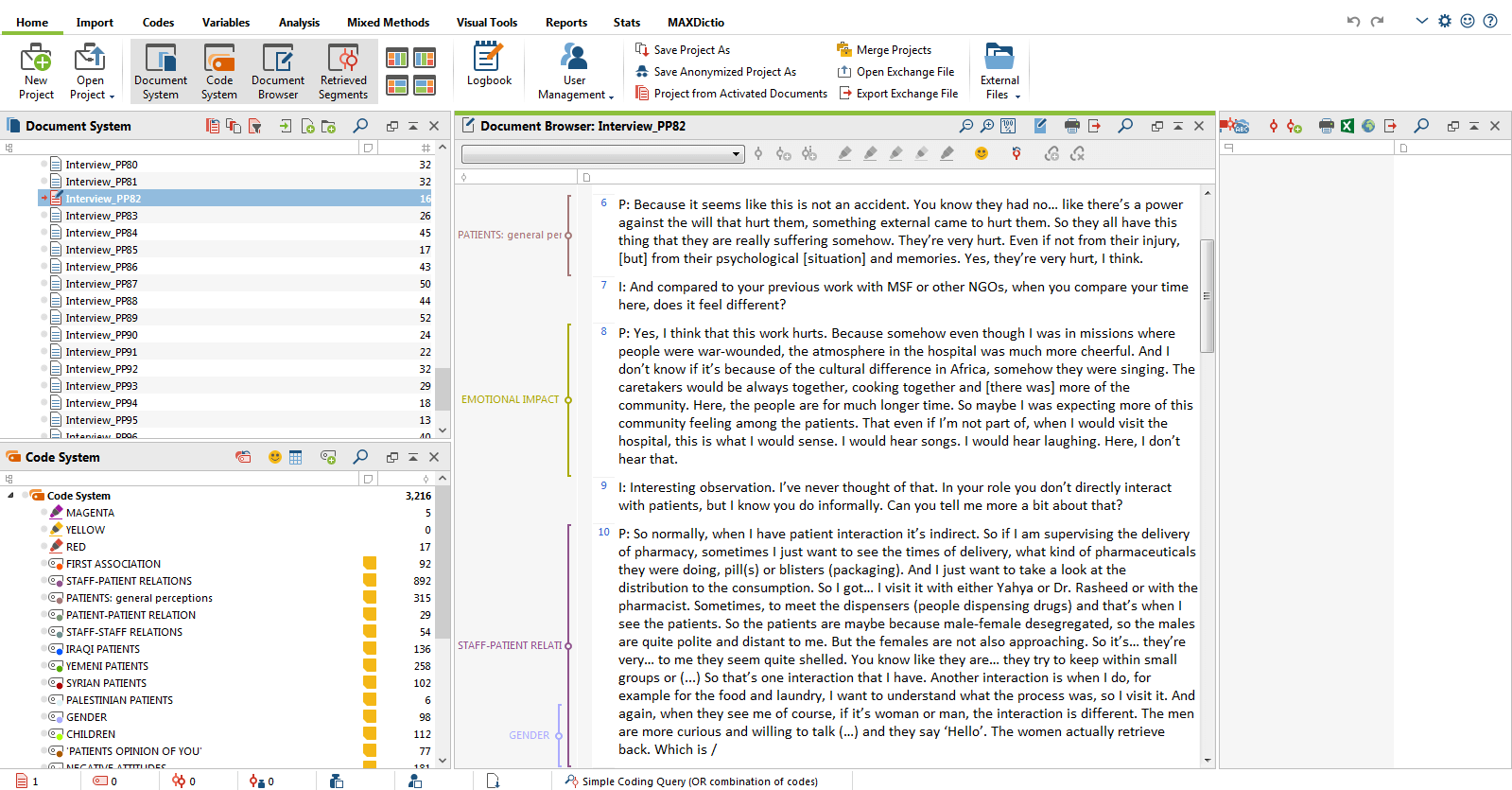
Screenshot 1: Coding interview data with MAXQDA
By using matrix tables, we examined extracted sections of text and were able to compare the views of male versus female interview partners, medical versus non-medical interview partners, and so forth. Due to the large volume of text we were working with, such steps have been essential in order to keep the analysis process manageable.
Using the Code Variables function was also extremely helpful in order to obtain the summary table with information about participants’ profiles (Screenshot 2).
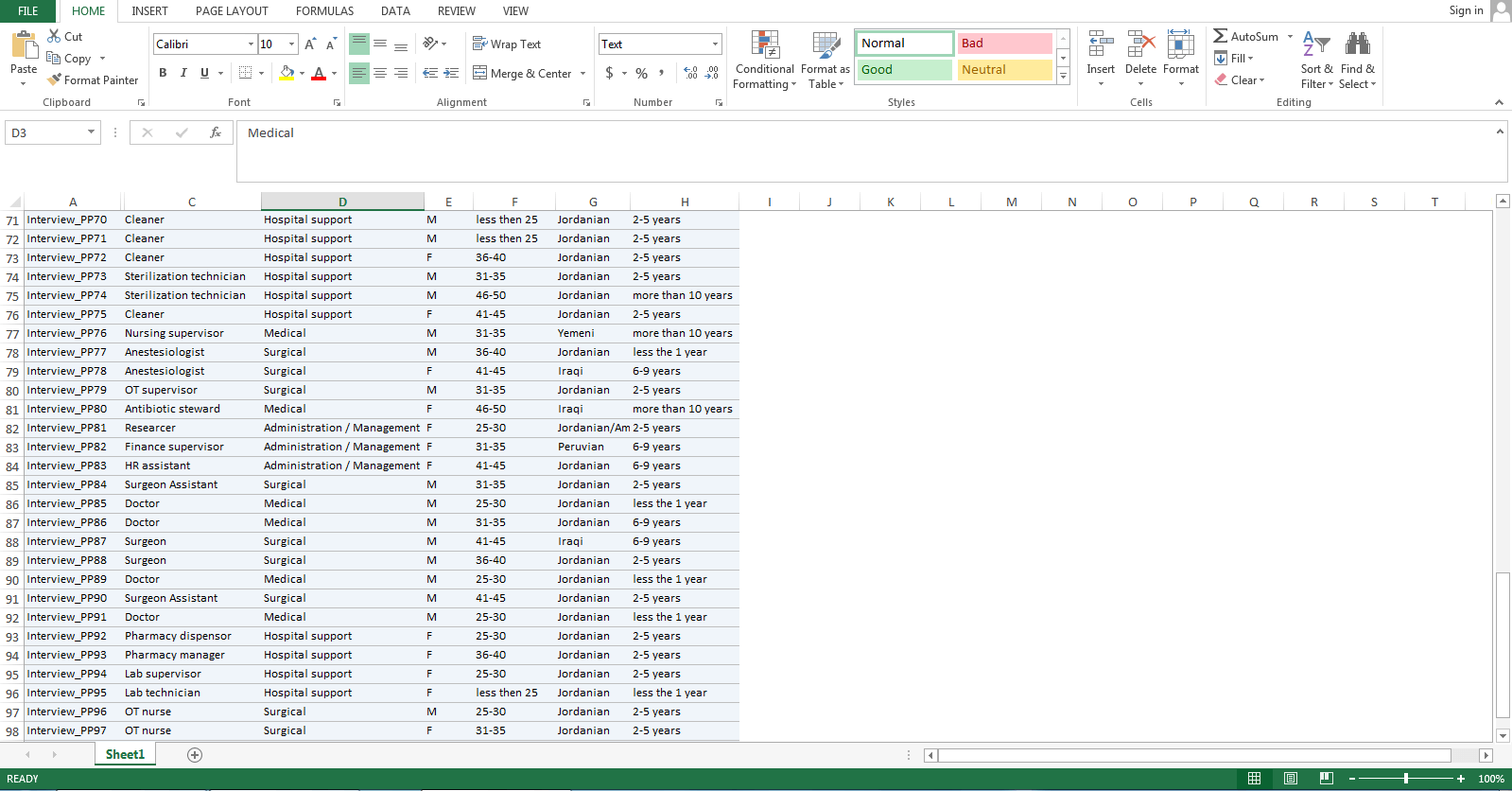
Screenshot 2: Establishing Code Variables
Another helpful MAXQDA tool we used was the Code Matrix Browser. Using this function, I was able to compare the overlap of different codes. I was able to, for example, examine if staff members originating from countries at war expressed being emotionally affected in their working environment more frequently than other participants in the study. I was then able to visually illustrate this with the Document Comparison Chart (Screenshot 3).
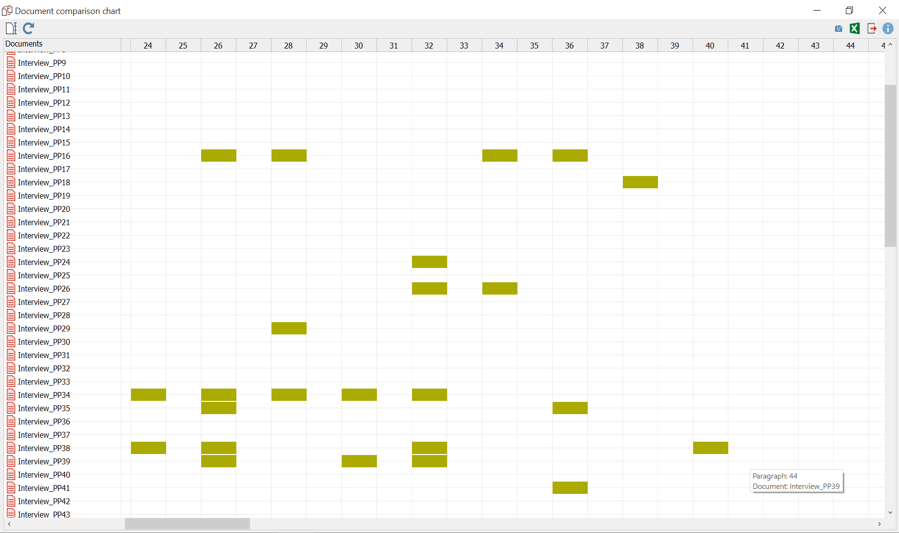
Screenshot 3: Visualizing the data with the Document Comparison Chart
I would like to add that because I have been working between two field sites (Jordan and Iraq), I have found MAXQDA’s portable license option extremely convenient. It is simple to carry it on the USB key and I haven’t experienced any interference when using it on different laptops with different operating systems. I am also providing MAXQDA training to two of my assistants (in Jordan and Iraq), who have never used analysis software before. They have both confirmed how intuitive and easy-to-learn the software is.
Research Methods Phase 2: Recording Patients’ Feedback
The main focus of this assessment is to gain insights into all aspects of patients’ lives post-treatment- social, emotional, physical, and economic- and this knowledge to shape the future of the programme so that it better responds to patients’ long-term needs.
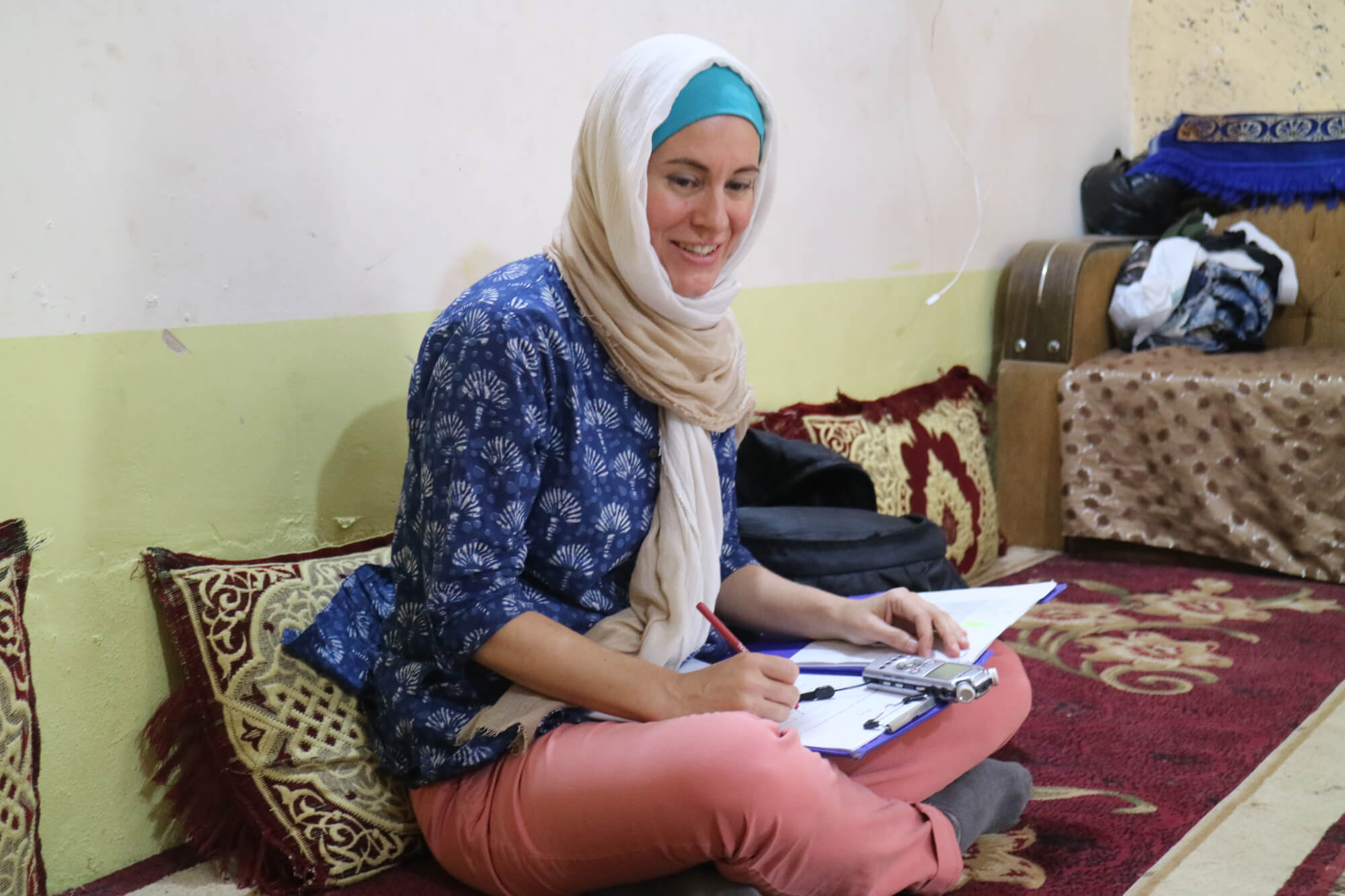
Conducting an interview in a participant’s home
In practice, this means that I have begun an extremely interesting research journey. I am visiting Syrian refugees, who currently live in Jordan and patients who have returned to Iraq after they completed their treatment in Amman. I am writing from Baghdad, where our fieldwork continues despite the “summer-like” temperatures of 45 degrees centigrade.
I am currently contacting participants by phone and, as far as the security situation allows me to, I visit them in their homes, where I conduct in-depth interviews. These visits are extremely insightful as they help me to carry out observations of their social and physical environment. After completing the interviewing process, MAXQDA will be used once again to conduct the analysis.
I am learning about the challenges that life with disabilities carries, particularly in the war-related context. Needless to say, hearing their testimonies has motivated me further to give them a voice- a voice which must be heard.
About the Author
Vanja Kovačič holds a PhD in International Health and MPhil in Medical Anthropology. She focuses her work on the more efficient delivery of aid and disease control programmes through the engagement of beneficiary communities. In the past 20 years, Dr. Kovačič has worked in diverse settings in South America, Africa, and the Middle East. Participants in her research have included HIV positive victims of sexual violence in Kenya, illegal poachers in Serengeti national park, sleeping-sickness-affected communities in Uganda and Chad, and victims of war from Syria and Iraq. She is currently working as a consultant for MSF.

